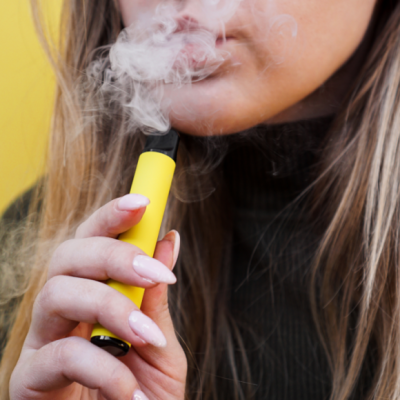Science Shop
Advertisement
Do E-cigarettes lead to smoking?
- By Rolf Lewis
- . November 20, 2023
A recent study conducted by researchers at Queen Mary University of London (QMUL) has shed new light on the debate surrounding e-cigarettes and their potential

Brain Magnet Treatment Helps Smokers Quit
- By Rolf Lewis
- . October 11, 2023
A new study has found that a treatment called Theta-Burst transcranial magnetic stimulation (TBS) can improve self-control and reduce cigarette cravings in smokers. The brains

Vaping linked to chronic stress
- By Geert Devenster
- . September 30, 2023
Young e-cigarette users are unfortunately more likely to suffer from chronic stress, according to a recent study by researchers at the Hospital for Sick Children

E-cigarettes linked to increased tobacco use
- By Rolf Lewis
- . April 20, 2023
A new study conducted by researchers at Purdue University has found that teenagers who use e-cigarettes before the age of 15 are more likely to

Extend Life in Old Age for Former Smokers
- By Geert Devenster
- . October 15, 2022
Former smokers can significantly reduce their risk of death in old age through lifestyle changes. Many smokers are aware that regular inhalation of tobacco smoke

Why not all smokers get lung cancer.
- By Geert Devenster
- . August 30, 2022
A recent report from the Robert Koch Institute reveals that approximately 59,700 people are diagnosed with lung cancer in Germany every year. The number of

E-Cigarettes Alter Mouth Bacteria
- By Geert Devenster
- . February 23, 2022
The use of e-cigarettes has been on the rise in recent years, with many smokers switching to them as a supposedly less harmful alternative to

Global Tobacco Consumption Declines
- By Geert Devenster
- . November 17, 2021
According to the World Health Organization (WHO), global tobacco consumption has decreased, but still, seven million people die each year due to smoking-related illnesses, including

Smoking Protects Against Covid-19?
- By Geert Devenster
- . September 25, 2021
A new study from the University of Hiroshima has shed light on the paradoxical phenomenon that smokers are less likely to contract COVID-19, but more

Smoking Increases COVID-19 Mortality
- By Geert Devenster
- . January 29, 2021
Smoking has been found to significantly increase the hospitalization and mortality rates of COVID-19 patients. Previous studies did not always show this correlation because they









